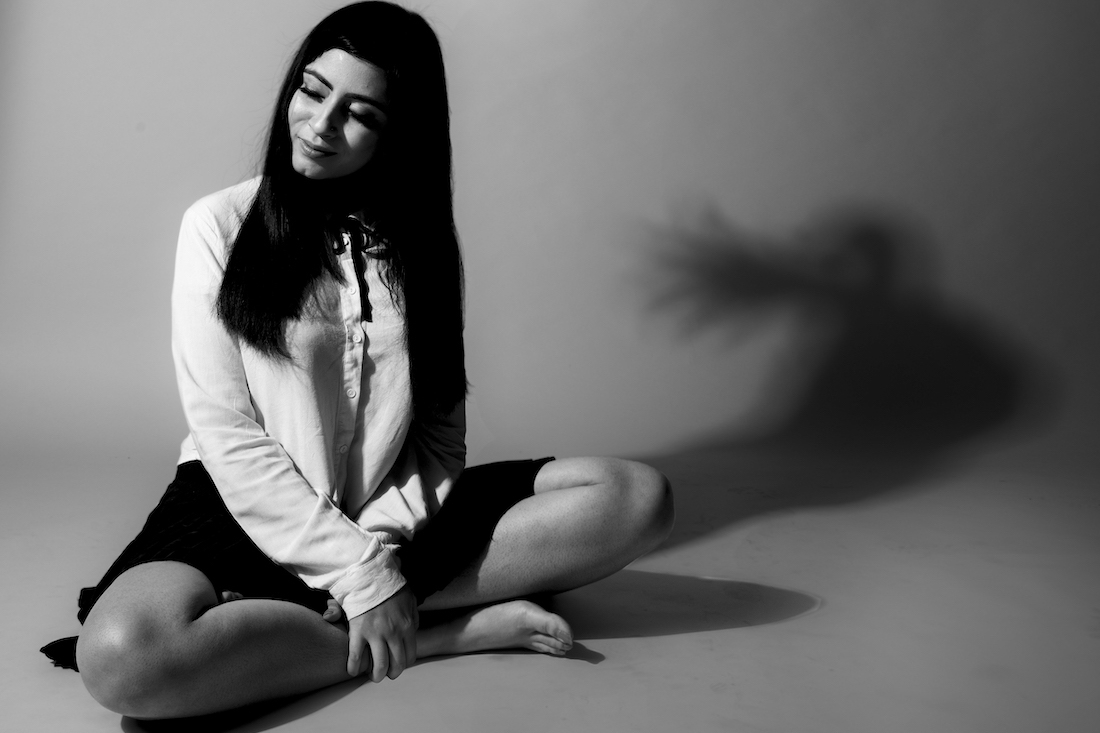
Photography: Yeashu Yuvraj

Photography: Yeashu Yuvraj
Tarana Marwah has carved a niche for herself as Komorebi—a Japanese word which translates to sunlight that filters through the leaves—first by releasing a four-track EP by the same name and then by staying true to all things Japan. Returning after a long time, Komorebi has shed her dreamy electronica skin to metamorphose into a sonically heftier, experimental avatar. A coming-of-age song, Rebirth finds Komorebi singing words echoing feminine strength and resilience, and like most of her works, is inspired by her own experiences. 'Rebirth is sort of a clapback song, meant to be positive and inspiring to anyone who feels a need to express themselves, have their voices heard,' Tarana explains.
While working on her sophomore album, which she is looking to release later this summer, Komorebi has kept herself busy with scoring projects for OTT platforms like Netflix and Amazon Prime Video, composing genre-defying music for shows like Made in Heaven and also for its season 2, slated for a 2021 release.
How would you define your music sensibility?
I treat my art like patch work or a mood board. Feelings from 1998 meet production from 2015. Different timelines, emotions, thoughts, elements, ponderings from a scatter brain that can luckily be archived thanks to a Macintosh.
As an artist, what do you wish your art to communicate?
Sometimes I use my music as a form of catharsis, to deal with my problems, and therefore it becomes relatable to others. This is a more selfish outlook. Other times, I write music to inspire feelings of hope and positivity in others. There is a layer of social responsibility in having your voice heard by so many people. Rebirth falls into the latter category and was meant to instill feelings of courage and strength in people. Honesty is the most important thing to me. That is what I want to convey above everything else.
Art can definitely help change the world but is there anything else we can do to fight this war for gender equality?
Allowing women to exist in these spaces, being themselves and not conforming to traditional ideas of ‘femininity’ is a huge step. Let us be weird, wicked, dark, sexual, loud, quirky, funny, crazy characters – whatever we want to be, whatever is honest to who we are. I love redefining what it means to be an ‘individual’ woman in art . I am more than an attractive face, I’m complex and human. I wish to convey my emotions and experience of life.
Musically, how is Rebirth different from your previous work?
Rebirth has taken on a new production style - with a hymn like sample in the back and a breakbeat loop. I feel it is more powerful and hypnotic than my other tracks. I am always experimenting with my music, trying to do new things, and yet this track is so inspired by the 90’s trip hop and alternative electronic space. I mixed in some Indian sounds and harmony to bring a feel of my Indian heritage. Lyrically I’ve kept the message very pure and simple - it’s sort of a 'look at me now', but not in a negative way. More like - ‘This is you now, this is what you can do, and you can do so much more if you want to. Get out of the past because it only exists in your head.’
Tell us a little about the other releases planned for later this year.
I have an entire album ready, which I am figuring out how to package. It will be released on Austin label Chicken Ranch Records. I also have an additional experimental EP in Hindi called Chanda which I plan to release soon afterwards. Both releases are very close to my heart and I can’t wait to share what I’ve spent years working on, with the world.
Text Hansika Lohani Mehtani